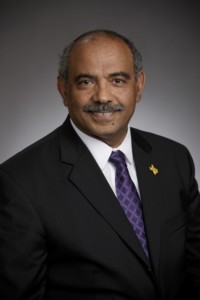Like every year since the founding of the UN’s Food and Agriculture Organization (FAO) in 1945, October 16 marks World Food Day. This year’s theme is ‘Water is life, water is food. Leave no one behind.’ The 2023 World Food Day highlights the dilemma of 2.4 billion people in water-stressed countries and 600 million dependent on aquatic food systems who encounter pollution, ecosystem degradation, and climate change impacts.
The FAO states that nearly 10% of the global population is undernourished. In 2020, approximately 20% of children under five experienced stunted growth, often due to insufficient nutrition. Furthermore, about 20% of Africa’s population grappled with hunger last year.
The event comes at the end of a scorching summer. The summer of 2023 was Earth’s hottest since global records began in 1880, according to scientists at NASA’s Goddard Institute of Space Studies (GISS) in New York. Substantial agricultural areas of the US breadbasket, the Midwest, and the Great Plains have been grappling with worsening drought conditions threatening their crops, e.g., corn, vineyards, soybean, and strawberry. For Texas, the 2023 summer was Texas’ second hottest ever, with an average temperature of 85.3 degrees between June and the end of August, the state’s climatologist said, just behind the blistering hot and extremely dry summer of 2011 when the average temperature hit 86.8 degrees.
World Food Day is celebrated across more than 150 countries. The event serves as a rallying point for governments, businesses, civil society organizations, and the public to collectively combat hunger and raise awareness about the profound impact of water management in our agri-food systems. Prairie View A&M University’s Land Grant Programs, led by the College of Agriculture, Food, and Natural Resources (CAFNR), has been focusing most of its research, teaching, and extension activities to address the water and food security of over 6 million limited resource farmers and communities. Currently, several extra-mural funded research projects on water and food security are led by CANFR faculty. The following are highlights of some of these projects:
Project 1: This aims to strengthen the AI-Based Program for Advancing Research, Education, and Extension Activities in Precision Agriculture at PVAMU. The funding will allow PVAMU researchers to collaborate with the University of Minnesota, two USDA-Agricultural Research Service laboratories, and the University of California-Davis to achieve the goals of the project, further the collaborative efforts and sharing of successful use cases, implementation issues, and lessons learned.
Project 2. GetAgSmart: This joint PVAMU-TAMU NIFA-funded project aims to enhance the training of underrepresented students in agricultural disciplines by developing educational modules in SmartAg technology. It will also provide training for agriculture professionals on advanced agricultural technologies through informal learning objects created by youth participants. The project addresses the Texas’ Smart Agriculture System and Food Safety needs.
Project 3. A USDA-NIFA-funded project uses an integrated approach to i) address the impact of climate change on crop water requirement and crop yield, nutrient management, and soil and water quality, ii) develop research capacity in Natural Resources and Environmental Systems (NRES), and iii) improve outreach methods and activities to meet urgent needs in this area.
Project 4. A USDA-NIFA-funded project is improving irrigation water use efficiency by developing, testing, validating, and disseminating a mobile irrigation scheduling App to rural and urban communities across Texas.
Project 5. A NASA-funded project on testing the performance of biofuels and training students in High-Pressure Combustion under Microgravity.
Project 6. This is a PVAMU-UT-Austin NSF-INFEWS funded project to train future leaders through research to address the national needs in Food-Energy-Water-Systems (FEWS) and Water Scarcity in Agriculture.
Other currently funded projects address several urgent needs: climate-smart agriculture, organic amendment in agriculture, and research approaches to train underserved students and professionals in these areas. The CAFNR started a new MS Degree program to train future Water and Food Security leaders to address challenges Texas’s limited resources and Texans’ needs.
Ali Fares, Ph.D., is the Endowed Professor of Water Security and Water Energy and Food Nexus in the College of Agriculture, Food, and Natural Resources at Prairie View A&M University.

